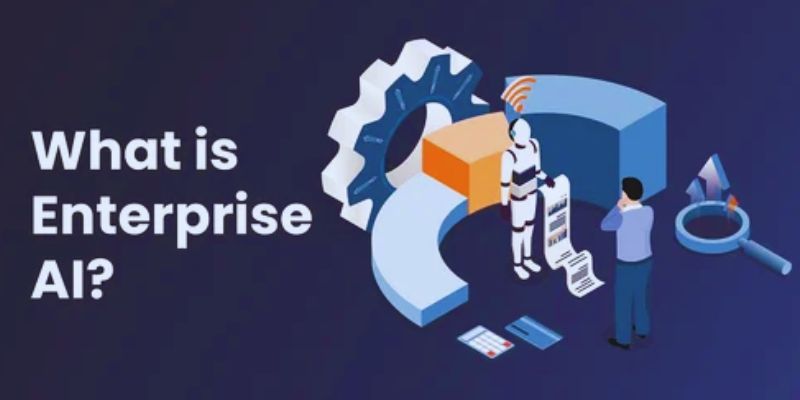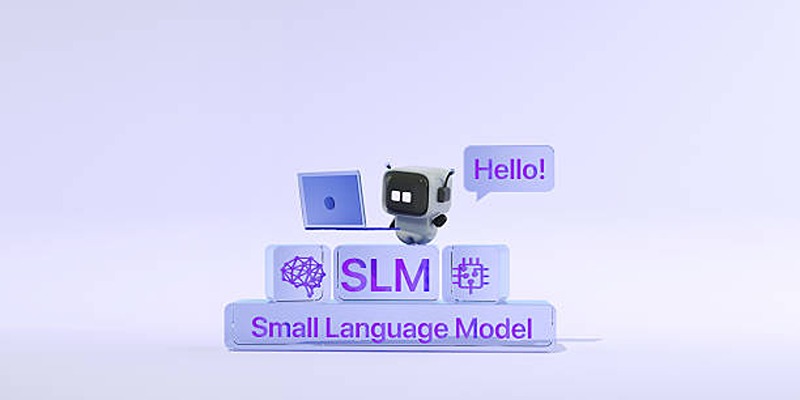Enterprise artificial intelligence is transforming companies' operations in today's fast-changing environment. What precisely is it? Artificial intelligence technologies applied by companies to automate tasks, enhance decision-making, and propel efficiencies are known as enterprise artificial intelligence. This strong technology helps businesses to maximize operations, forecast trends, and evaluate vast volumes of data. Because artificial intelligence can make decisions and learn from data, companies can remain competitive and innovate faster.
The path seems difficult for businesses trying to include artificial intelligence in their processes. Still, knowledge of its possibilities and application strategies is absolutely vital. This article will walk over what enterprise artificial intelligence is, its advantages, its main uses, and how companies may get started. Read on to discover how artificial intelligence might revolutionize your company if you are ready to use its capabilities.
What is Enterprise AI?
Enterprise artificial intelligence is the application of artificial intelligence technology in large-scale corporate environments to satisfy the special needs of companies. It emphasizes improving operational effectiveness, client experience, and methods of decision-making. Unlike consumer artificial intelligence, which performs specific tasks, enterprise artificial intelligence is made for complicated corporate settings handling enormous volumes of data. By means of data analysis, prediction of results, and process automation, this technology helps companies to make data-driven decisions.
It is used in sales, marketing, finance, and human resources to boost output and lower manual labor, among other fields. Including artificial intelligence will enable businesses to streamline processes, enhance decision-making, and get insightful analysis that keeps them competitive. Since it enables businesses to react quickly to changing market conditions, enterprise artificial intelligence clearly benefits them in the frenetic corporate world. Using artificial intelligence becomes a main tactic for long-term success and expansion as companies keep facing fresh problems.

The Benefits of Enterprise AI
Below are the major benefits of enterprise AI that help businesses boost performance, cut costs, and improve decisions effectively.
- Increased Efficiency: One of enterprise artificial intelligence's primary advantages is its capacity to automate repetitive processes. Faster artificial intelligence data processing frees staff members to focus on more strategic and creative responsibilities, enhancing operational efficiency and productivity. AI can, for instance, automate warehouse inventory control or answer consumer service questions via chatbots.
- Better Decision-Making: Artificial intelligence systems' mass data analysis and pattern recognition ability enable humans to overlook. This knowledge helps companies make better judgments. Companies can forecast future trends, spot fresh prospects, and maximize their tactics for more success by applying artificial intelligence solutions. AI can enable companies, for instance, to project product demand and modify their inventories or marketing plans.
- Cost Reduction: Using artificial intelligence can enable companies to cut expenses in several spheres. Automation lessens the demand for human labor, saving businesses staffing costs. AI can also help to maximize processes, hence reducing running expenses. In manufacturing, for example, predictive maintenance driven by artificial intelligence can find equipment problems before they cause significant downtime.
- Enhanced Customer Experience: Artificial intelligence may greatly enhance the consumer experience through tailored services and recommendations. By means of specialized solutions derived from consumer data analysis, artificial intelligence algorithms help increase pleasure and loyalty. AI chatbots, for instance, can provide instant customer care, while AI-powered recommendation engines can propose items most likely to be bought.
- Competitive Advantage: Adopting artificial intelligence helps companies to be competitive. AI lets businesses maximize their strategy, adjust to changes in the market, and create speedier innovations. Using artificial intelligence will help companies keep ahead of rivals by enhancing their operations and customer service. Hence, it increases their agility in reacting to consumer requirements and industry changes.

Key Applications of Enterprise AI
The following are the main Enterprise AI applications capable of fostering creativity and efficiency in many different corporate fields.
- Customer Service Automation: Customer service is seeing a rising frequency of AI-driven virtual assistants and chatbots. These instruments can conduct simple transactions, respond to consumer questions, and even solve problems. By helping companies offer 24/7 customer service, artificial intelligence can help to raise customer satisfaction while lowering the demand for human agents.
- Predictive Analytics: Predictive analytics uses historical data to project future trends using artificial intelligence. It can be applied in demand prediction, inventory control, and sales forecasting, among other spheres. Companies can use artificial intelligence, for instance, to forecast which goods will be in demand during a given period, guiding their marketing and sales plans.
- HR and Recruitment: Artificial intelligence can revolutionize the hiring process by automating resume screening, candidate matching, and interview scheduling. Tools driven by artificial intelligence can examine job candidates' credentials and decide which best fits a given post. By analyzing employee performance and identifying possible turnover issues, artificial intelligence can also support companies in staff retention.
- Supply Chain Optimization: Predicting demand, managing inventory, and automating logistics helps artificial intelligence maximize supply chain management. Businesses may simplify processes, lower costs, and enhance delivery times with artificial intelligence. By pointing out supply chain inefficiencies and suggesting fixes, artificial intelligence technologies also help businesses keep a competitive edge.
- Marketing Automation: Artificial intelligence significantly influences marketing by helping companies automate campaign management, tailor ads, and examine consumer behavior. AI-powered tools let businesses cluster customers based on preferences, buying behavior, and demographics. This enables more focused marketing plans and increased conversion rates and return on investment.
Conclusion:
In today's fast-paced environment, enterprise artificial intelligence is redefining how companies run, compete, and expand. It increases departmental productivity, helps to automate chores, and sharpens decisions. From supply chains to customer service, artificial intelligence is changing sectors. It lowers costs and improves consumer experience as well. Although using artificial intelligence seems difficult, knowing its advantages and strategic applications will help to simplify the process. Companies that adopt artificial intelligence early can get a great competitive edge. Long-term success in markets depends on artificial intelligence changing with them. Start small, learn constantly, and scale sensibly to maximize corporate artificial intelligence capability.











